Construction projects are complex undertakings that require careful planning and attention to detail in order to be successful. One of the most important aspects of any construction project is the proposal, which sets the foundation for the entire project and lays out the specific goals, timelines, and budget for the work that will be done.
A well-written and detailed construction proposal is essential for securing funding and getting the project off the ground, and it is important to work with a skilled legal professional to ensure that the proposal is legally sound and fair to all parties involved. A good construction proposal template can help you create a comprehensive and effective proposal that will help you get the project underway.
Table of Contents
Construction Proposal Templates
Construction Proposal Templates are pre-designed formats used by construction companies, contractors, or individuals to present a comprehensive proposal for a construction project. These templates provide a structured framework for outlining project details, scope of work, timelines, costs, and other essential information required for a successful construction endeavor. Construction Proposal Templates ensure consistency, professionalism, and clarity in presenting project specifications, deliverables, and pricing to potential clients or stakeholders.
Construction Proposal Templates provide a structured and professional approach to presenting construction project proposals. By using these templates, construction companies or contractors can ensure that their proposals are comprehensive, well-organized, and visually appealing. These templates facilitate effective communication, accurate cost estimation, and transparency in project specifications, helping to build trust with potential clients or stakeholders. Construction Proposal Templates streamline the proposal process, allowing for efficient project bidding and increasing the likelihood of securing contracts for successful construction projects.
Essential elements of a construction proposal

Elements of a construction proposal typically include:
Cover Letter or Executive Summary: This provides an overview of the proposal and highlights the key points.
Project Description: This section provides detailed information about the project, including the scope of work, project schedule, and any special considerations.
Cost Estimate: This section provides a detailed breakdown of the estimated costs for the project, including labor, materials, and equipment.
Project Timeline: This section outlines the proposed schedule for the project, including milestones and deadlines.
Qualifications: This section describes the qualifications of the contractor or construction company, including relevant experience and certifications.
Terms and Conditions: This section outlines the legal terms and conditions of the proposal, including payment terms and insurance requirements.
Appendices: This section includes any additional information that supports the proposal, such as blueprints, drawings, and photos.
Importance of a construction proposal schedule
A construction proposal schedule, also known as a project schedule, is an important element of a construction proposal as it outlines the proposed timeline for the project, including milestones and deadlines. Having a detailed and well-constructed schedule can have a significant impact on the success of the project.
Firstly, a construction proposal schedule helps to establish clear expectations for the project. By outlining the proposed start and completion dates, as well as key milestones, the schedule sets the stage for the entire project. This allows all parties involved, including the owner, contractor, and subcontractors, to understand their roles and responsibilities and to plan accordingly.
Secondly, a construction proposal schedule helps to keep the project on track. By outlining the proposed schedule, the contractor and subcontractors can plan their resources and workload, ensuring that they have the necessary materials, equipment, and personnel to complete the work on time. In addition, it can help to identify and mitigate potential delays, such as unforeseen site conditions or changes in the scope of work.
Thirdly, a construction proposal schedule can help to control costs. By outlining the proposed schedule, the contractor can identify areas where costs may be higher and take steps to mitigate them. For example, by identifying potential delays or resource constraints early on, the contractor can take steps to minimize their impact on the project.
Fourthly, a construction proposal schedule can help to ensure quality. A well-constructed schedule allows the contractor to plan for quality control and inspection, ensuring that the work is completed to the specified standards. This helps to minimize the risk of defects or rework, which can be costly and time-consuming.
Fifthly, a construction proposal schedule can be used as a communication tool. By providing regular updates on the progress of the project, the schedule can help to keep all parties informed and on the same page. This can help to prevent misunderstandings and conflicts, and can make it easier to resolve any issues that do arise.
In conclusion, a construction proposal schedule is a critical element of a construction proposal. It helps to establish clear expectations, keep the project on track, control costs, ensure quality, and serve as a communication tool. By including a detailed and well-constructed schedule in the proposal, the contractor can demonstrate their understanding of the project and their ability to deliver it on time and within budget.
How to Write a Construction Proposal
Writing a construction proposal can be a complex and time-consuming process, but it is an important step in securing a construction project. A well-written proposal can help to demonstrate the contractor’s qualifications, understanding of the project, and ability to deliver it on time and within budget. Here are some key steps to follow when writing a construction proposal:
Understand the project requirements
Before you begin writing the proposal, it is important to thoroughly understand the project requirements. This includes the scope of work, project schedule, and any special considerations. Review the plans, specifications, and any other documentation provided by the owner to ensure that you have a clear understanding of the project.
Develop a cost estimate
Develop a detailed cost estimate for the project, including labor, materials, and equipment. Be sure to include contingencies for unforeseen site conditions or changes in the scope of work.
Create a project schedule
Develop a project schedule that outlines the proposed start and completion dates, as well as key milestones. Be sure to include enough detail to demonstrate your understanding of the project and your ability to deliver it on time.
Describe your qualifications
Describe your qualifications as a contractor or construction company, including relevant experience and certifications. Be sure to highlight any relevant experience you have with similar projects.
Outline the terms and conditions
Outline the legal terms and conditions of the proposal, including payment terms and insurance requirements. Be sure to address any potential risks or liabilities that may arise during the project.
Write a cover letter or executive summary
Write a cover letter or executive summary that provides an overview of the proposal and highlights the key points.
Include appendices
Include any additional information that supports the proposal, such as blueprints, drawings, and photos.
Review and edit the proposal
Review and edit the proposal several times to ensure that it is clear, concise, and error-free. Be sure to check for spelling and grammar errors, as well as inconsistencies in the proposal.
Format the proposal
Use a professional format that is easy to read and visually appealing. Use clear headings and bullet points to make the proposal easy to follow.
Submit the proposal
Submit the proposal according to the owner’s instructions, whether it’s by mail, email or in person. Be sure to include any required documentation and submit it by the deadline.
It’s important to note that construction proposal should be tailored to the specific project, and the owner’s requirements, and should be presented in a professional manner. It’s also important to be honest and transparent in the proposal, highlighting any potential challenges or risks that may arise during the project, while also outlining your plan to mitigate them.
In conclusion, writing a construction proposal is a critical step in securing a construction project. By following these steps, you can ensure that your proposal is well-written, professional, and demonstrates your qualifications, understanding of the project, and ability to deliver it on time and within budget. A well-written proposal can help to increase the chances of being selected for the project and can help to establish trust and confidence with the owner.
FAQs
What should be included in a cost estimate for a construction proposal?
A cost estimate for a construction proposal should include a detailed breakdown of the estimated costs for the project, including labor, materials, and equipment. It should also include contingencies for unforeseen site conditions or changes in the scope of work.
What is the purpose of the qualifications section in a construction proposal?
The purpose of the qualifications section in a construction proposal is to describe the qualifications of the contractor or construction company, including relevant experience and certifications. This helps the owner to understand the contractor’s experience and qualifications, and to assess their ability to complete the project.
What should be included in the terms and conditions section of a construction proposal?
The terms and conditions section of a construction proposal should outline the legal terms and conditions of the proposal, including payment terms and insurance requirements. It should also address any potential risks or liabilities that may arise during the project.
What should be included in the appendices of a construction proposal?
The appendices of a construction proposal should include any additional information that supports the proposal, such as blueprints, drawings, and photos. This can help to provide the owner with a more complete understanding of the proposal, and can help to demonstrate the contractor’s understanding of the project.
What is the difference between a construction proposal and a construction contract?
A construction proposal is a document submitted by a contractor or construction company to the owner of a project, outlining their qualifications, understanding of the project, and their plan for completing the work on time and within budget. A construction contract is a legally binding agreement between the owner and the contractor, outlining the terms and conditions of the project, including the scope of work, project schedule, and payment terms. A construction proposal is usually a step before the contract is signed.
How do I make my construction proposal stand out?
To make your construction proposal stand out, you should tailor your proposal to the specific project and the owner’s requirements. Be sure to highlight your relevant experience and qualifications, and provide a detailed and well-constructed cost estimate and project schedule. Also, include any relevant certifications or awards, and demonstrate your understanding of the project, and your ability to complete the work on time and within budget.
How long should a construction proposal be?
The length of a construction proposal can vary depending on the size and complexity of the project. However, it should be long enough to provide a comprehensive understanding of the proposal, but not so long that it becomes tedious to read. A typical construction proposal can range from 10-20 pages, including the appendices.
What should I include in my construction proposal to show my understanding of the project?
To show your understanding of the project in your construction proposal, you should include a detailed project description, including the scope of work, project schedule, and any special considerations. Provide a detailed cost estimate, and a project schedule that outlines the proposed start and completion dates, as well as key milestones. Include relevant certifications or awards, and any relevant experience you have with similar projects.
What should I do if the owner requests changes to my construction proposal?
If the owner requests changes to your construction proposal, you should review the changes and assess their impact on the project. Be prepared to negotiate and make revisions as necessary, while still maintaining your qualifications, understanding of the project, and ability to complete the work on time and within budget.
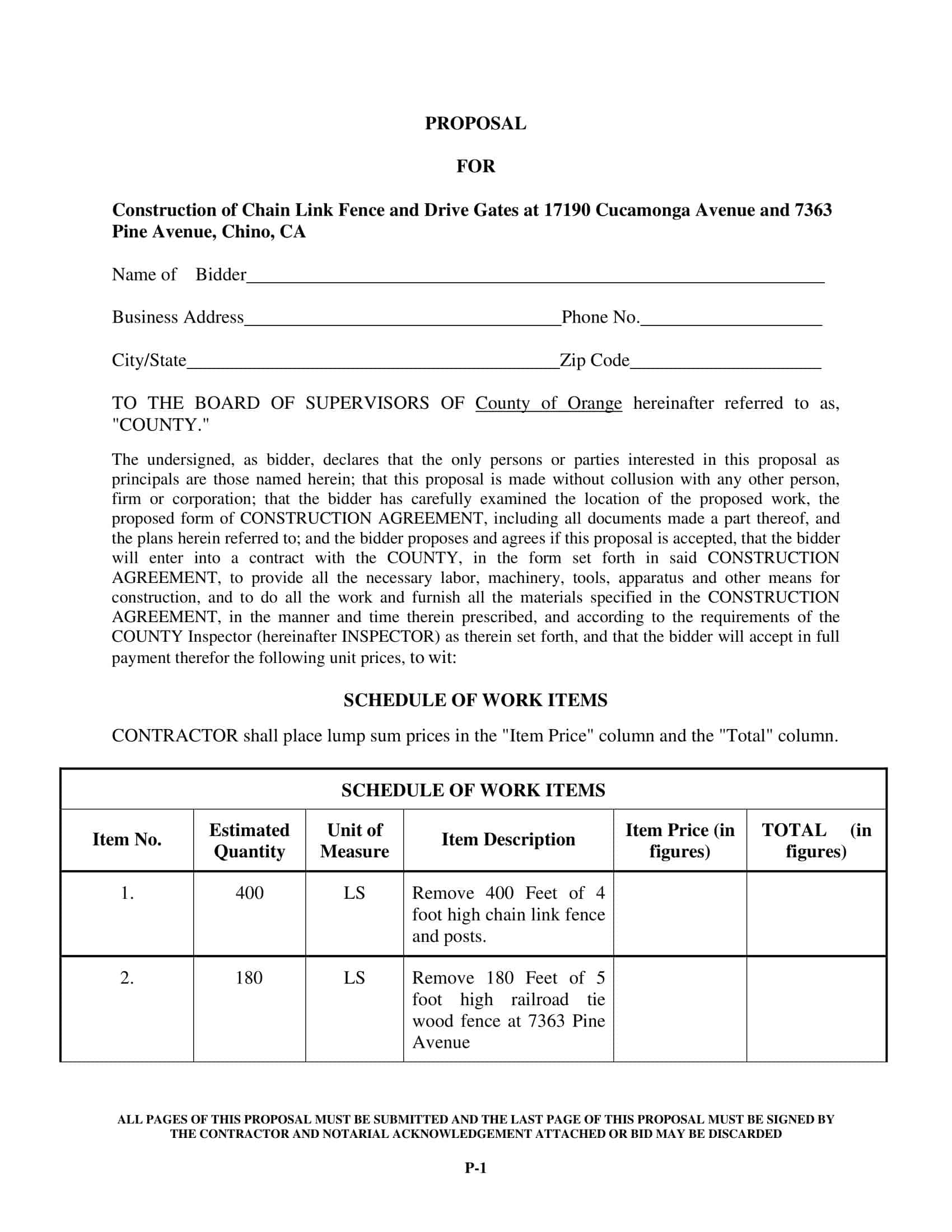



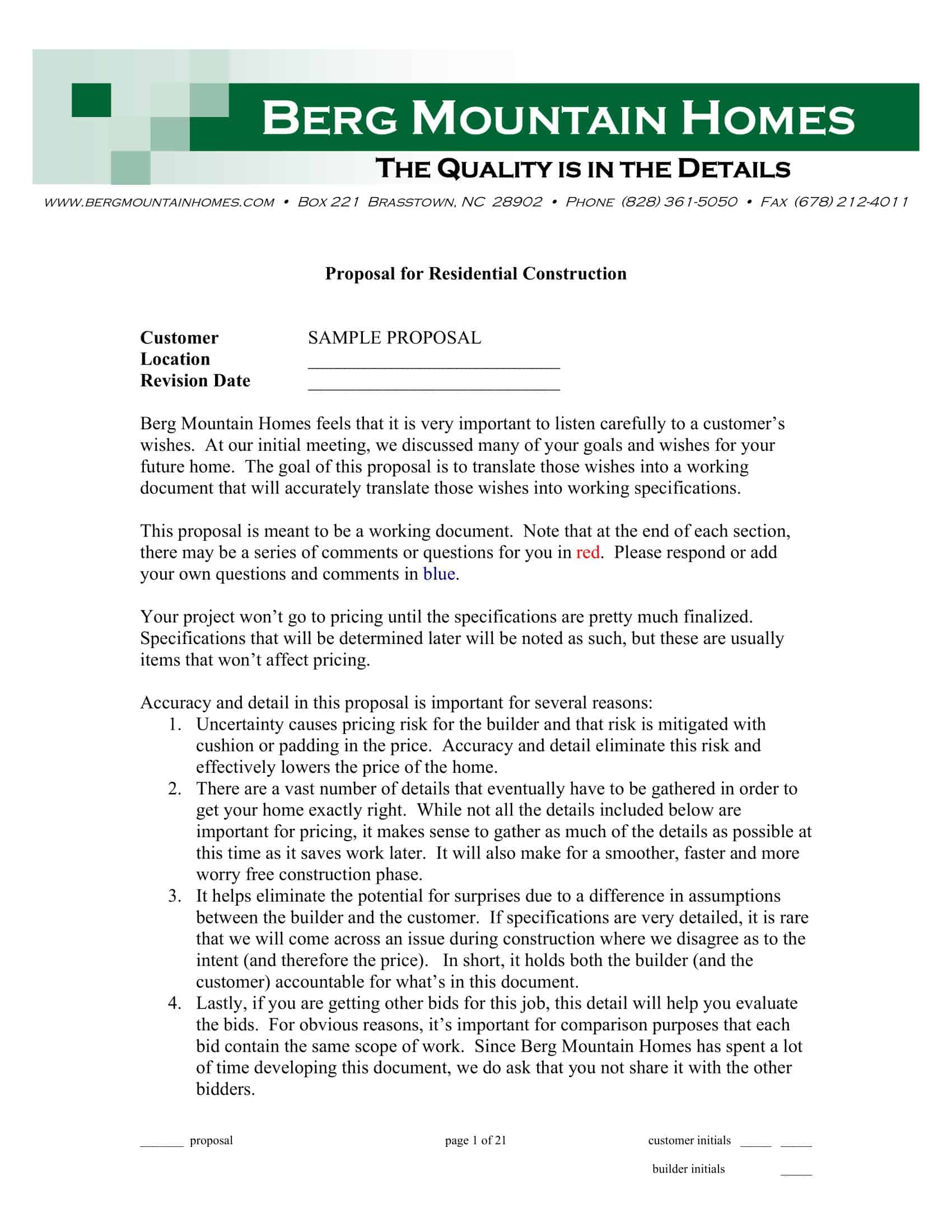
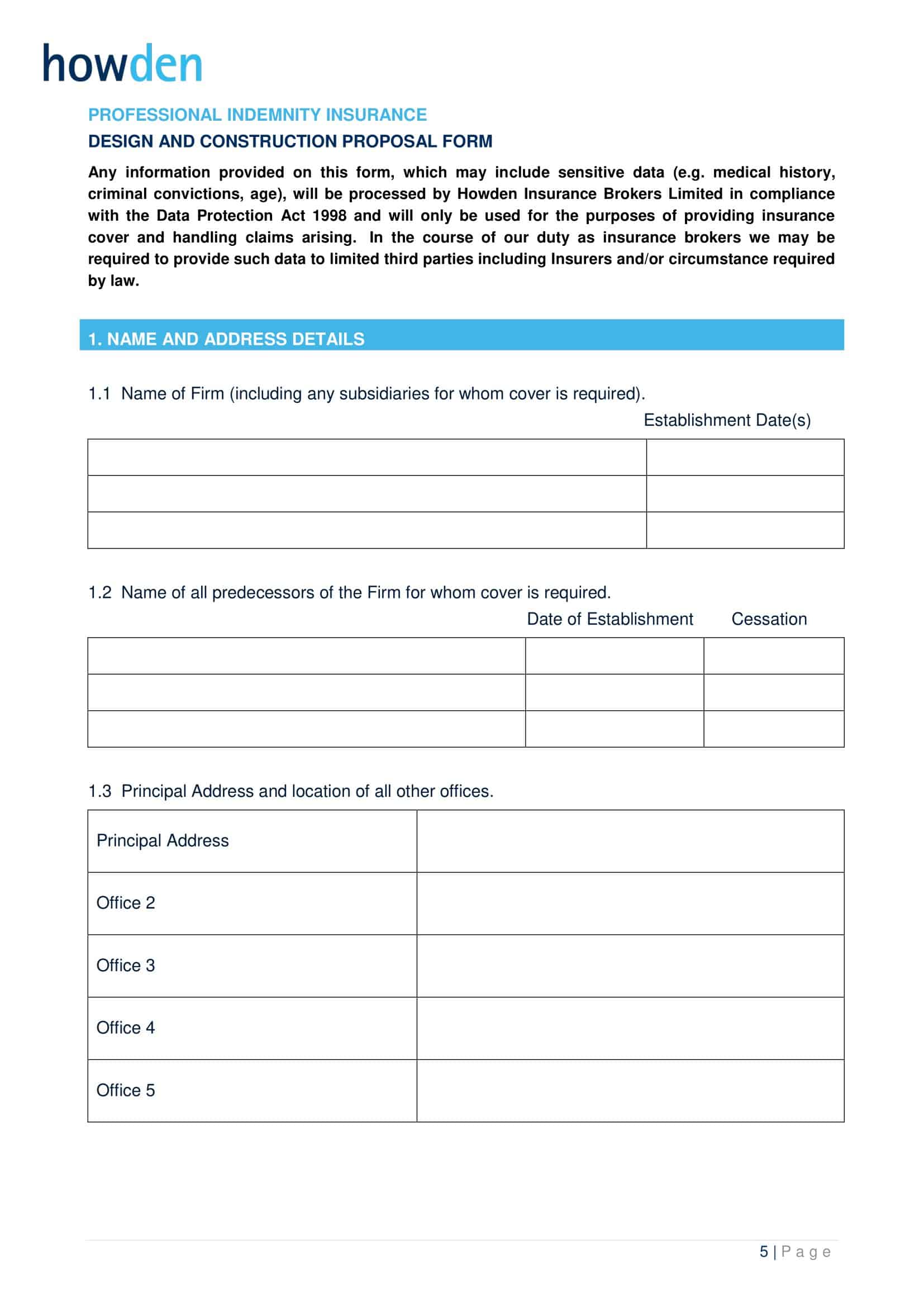



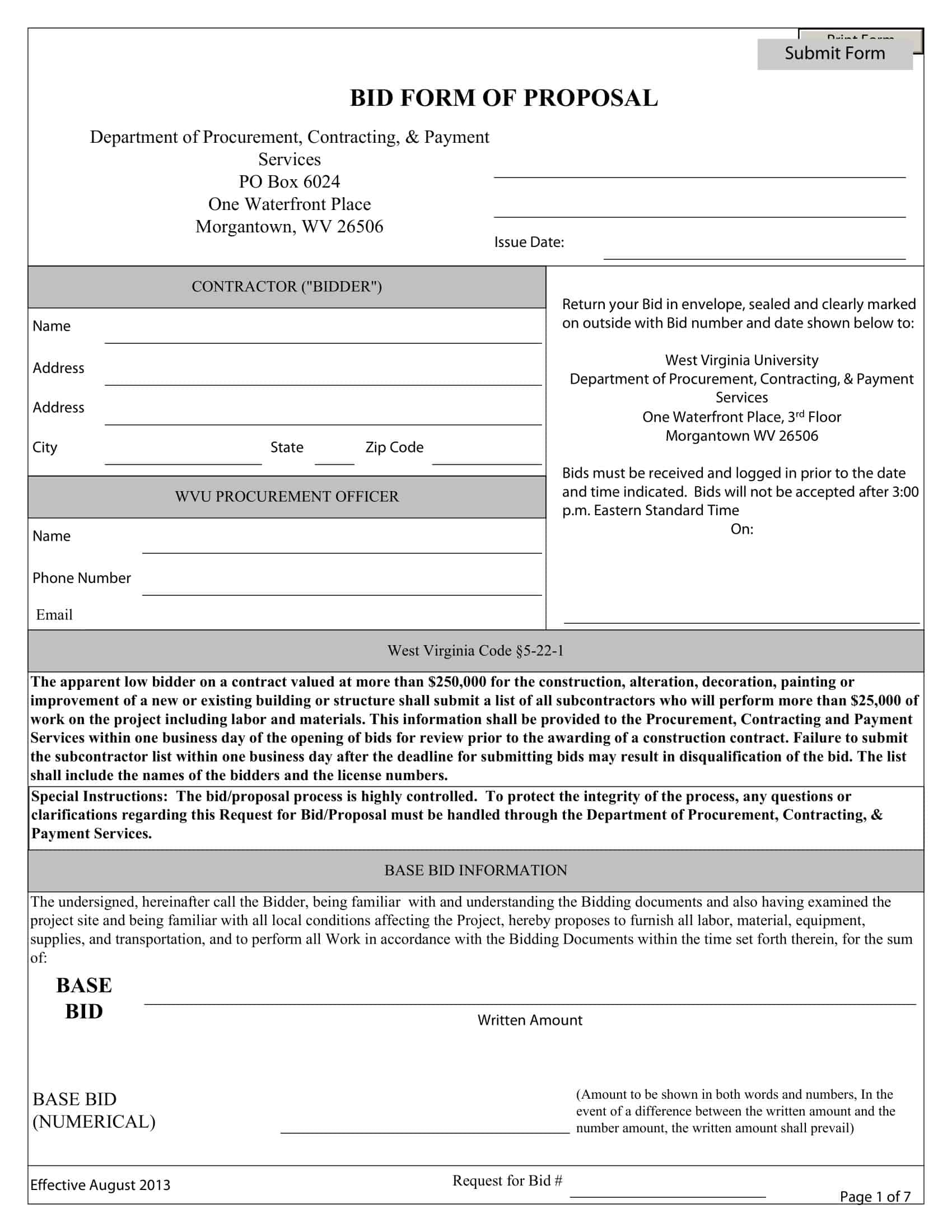
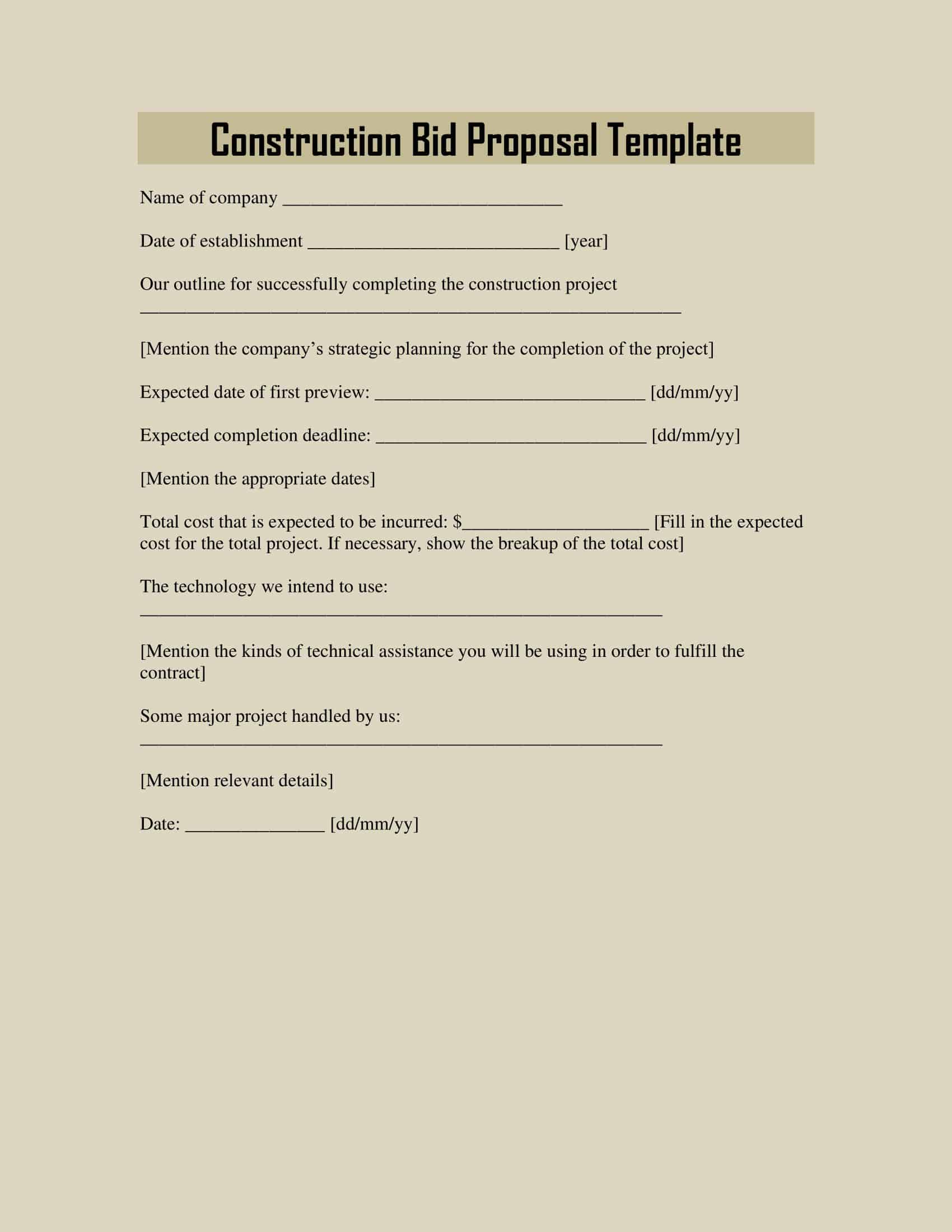

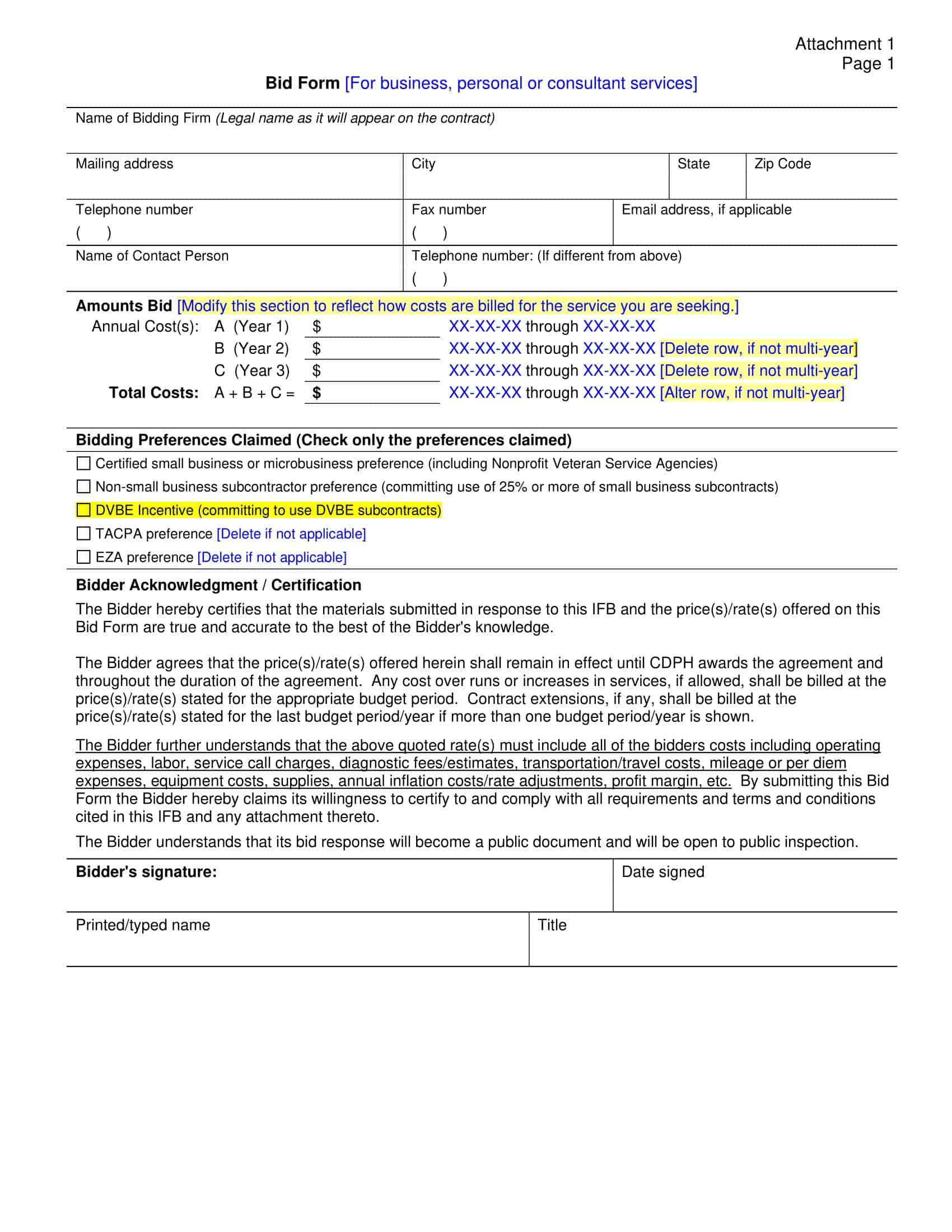



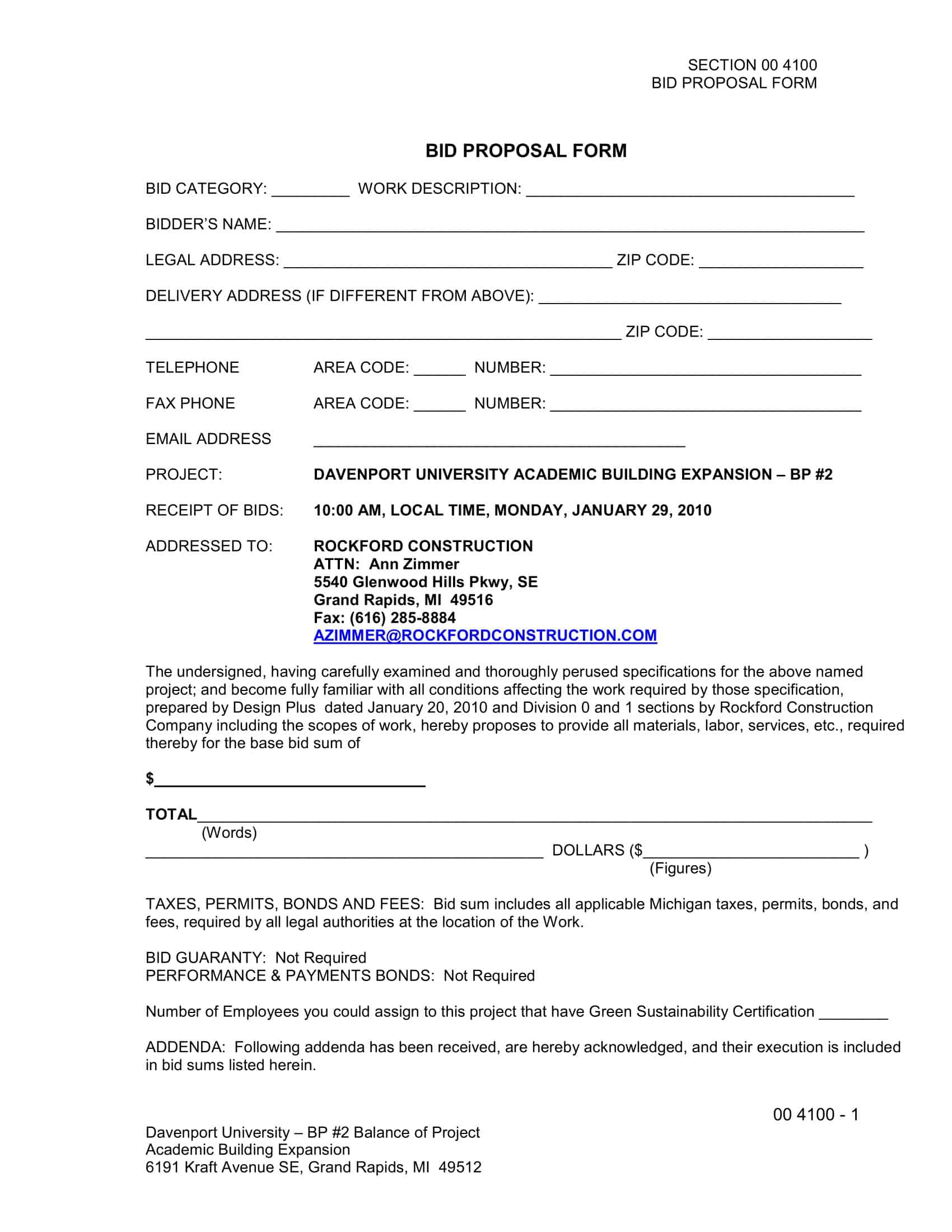






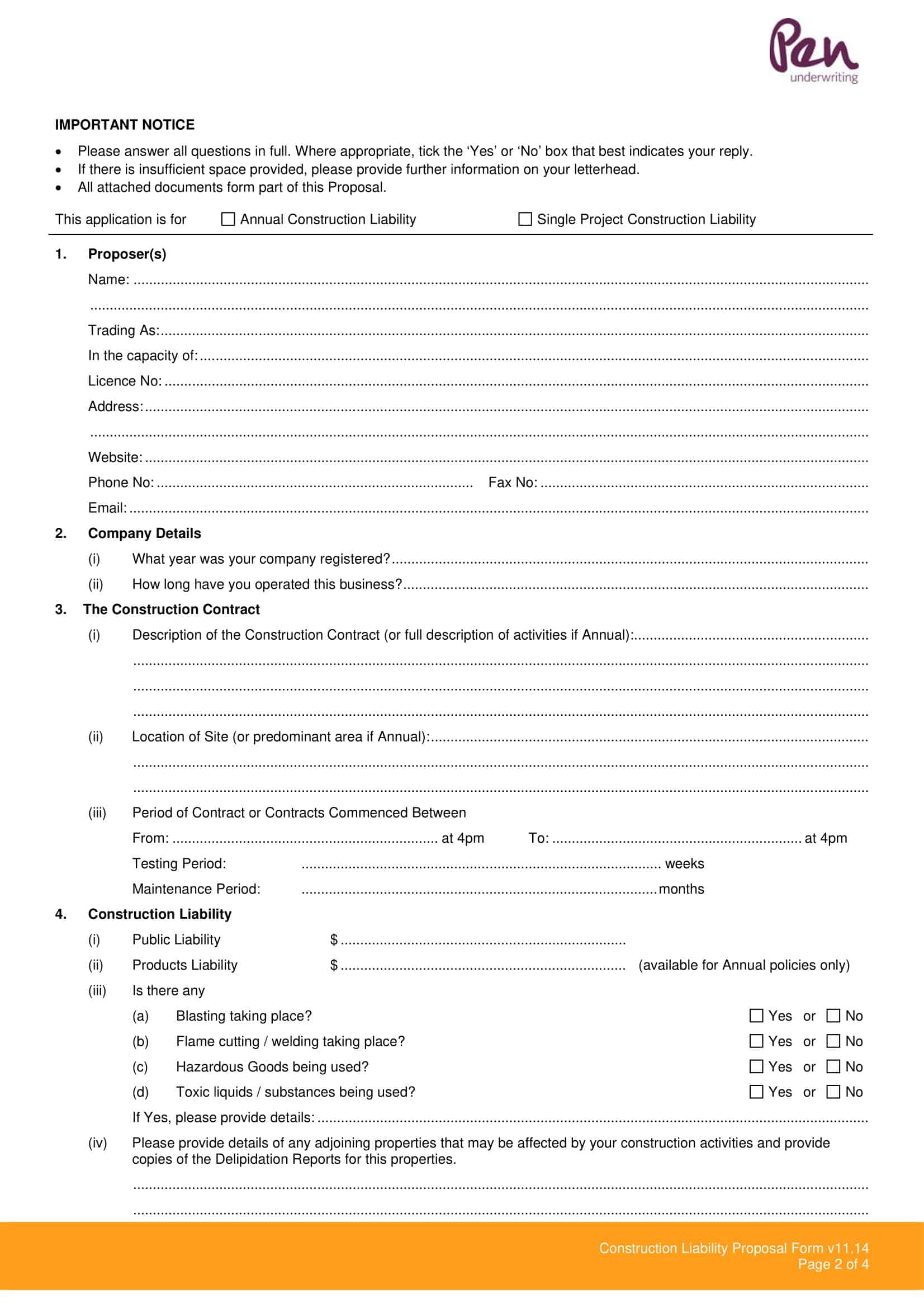


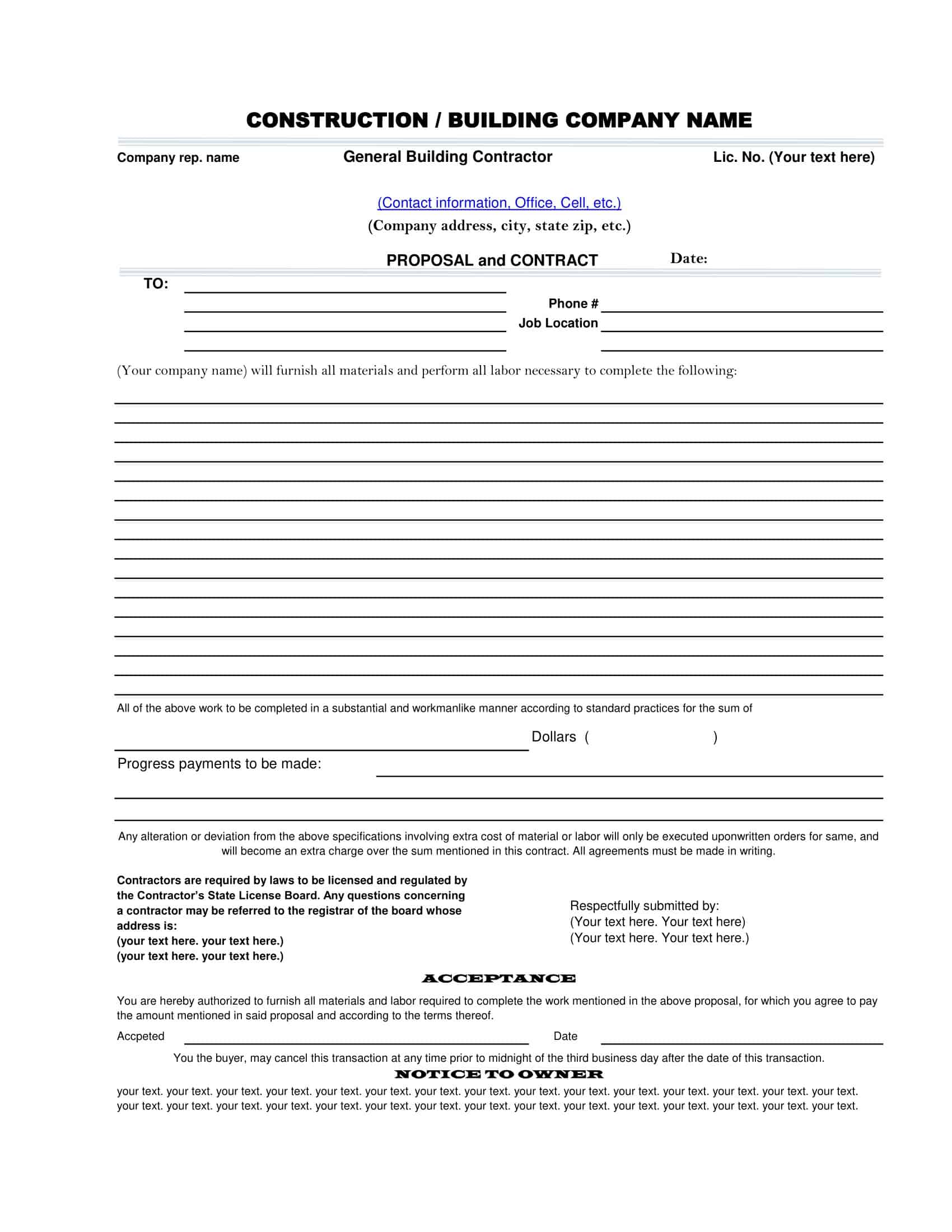

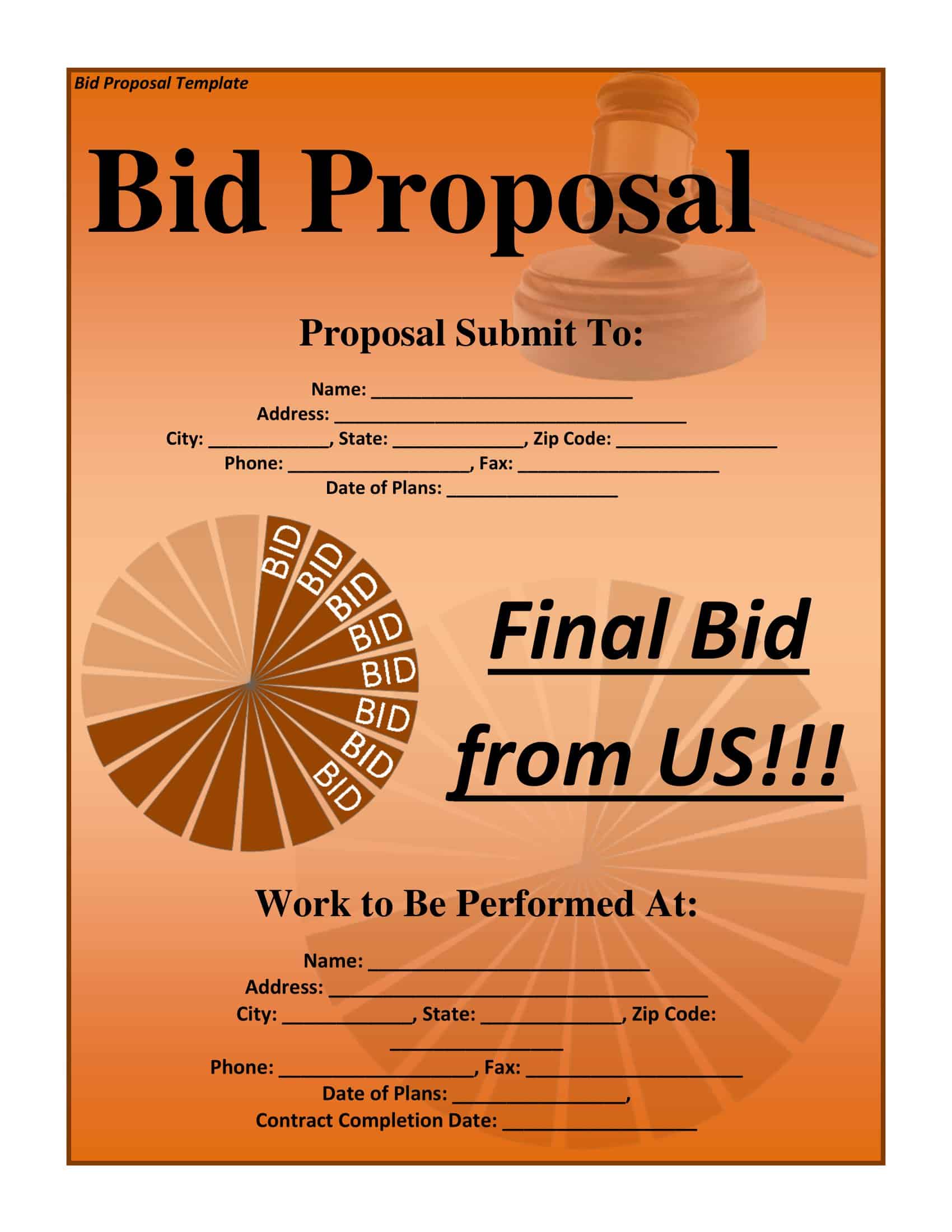

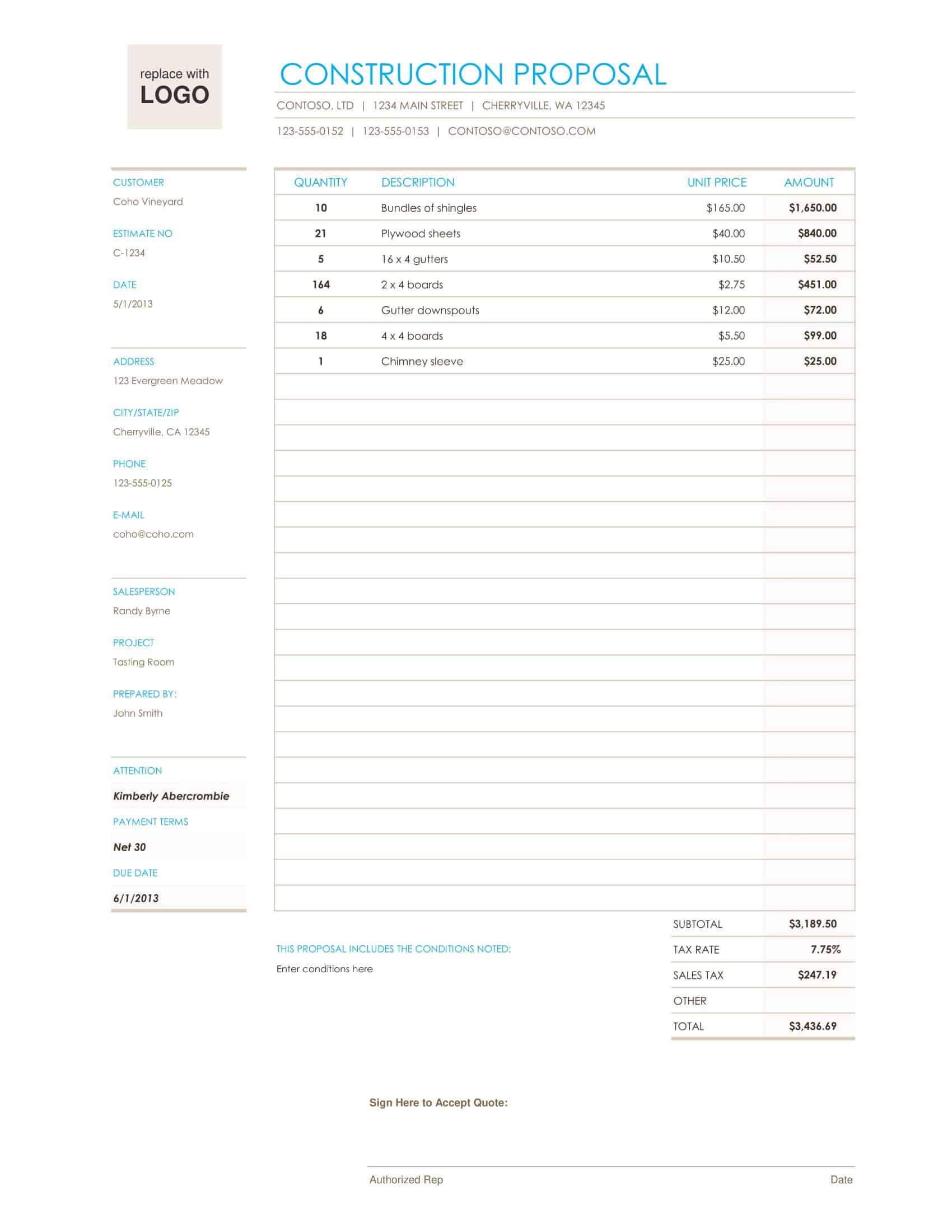
![Free Printable Roommate Agreement Templates [Word, PDF] 1 Roommate Agreement](https://www.typecalendar.com/wp-content/uploads/2023/06/Roommate-Agreement-150x150.jpg)
![Free Printable Credit Card Authorization Form Templates [PDF, Word, Excel] 2 Credit Card Authorization Form](https://www.typecalendar.com/wp-content/uploads/2023/06/Credit-Card-Authorization-Form-150x150.jpg)
![Free Printable Stock Ledger Templates [Excel,PDF, Word] 3 Stock Ledger](https://www.typecalendar.com/wp-content/uploads/2023/08/Stock-Ledger-150x150.jpg)
